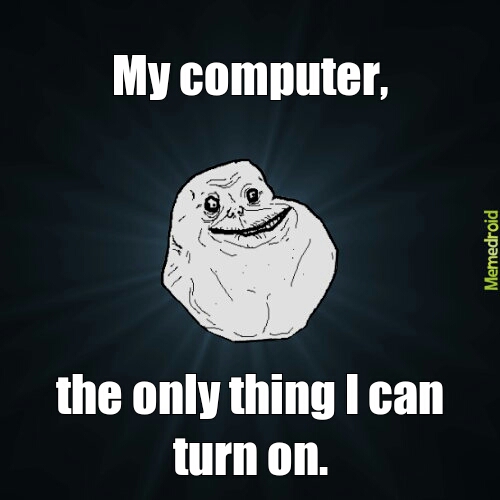If
Michael Phillips’ review in the Chicago Tribune is any
indication, it seems that critics (and perhaps moviegoers) have finally had it
with absurdly over-the-top, literally earth-shattering special effects
sequences in big-budget action films.
It
is entirely okay, and indeed often preferable, to have a movie climax that does
not involve the potential annihilation of the planet.
Perhaps moviegoers are finally realizing the
boredom of sheer excess—when every movie plot threatens a major U.S. city with
total destruction, it’s just about the same as if none of them did.
This is a conclusion the public has needed for
quite a while (and it’s a horn I’ve been tooting for some time—
see my review of last summer’s The Bourne Legacy).
In the wake of such special effects love
feasts as the
Transformers series—and amidst legitimately awesome
blockbusters like
The Avengers—America is in need of thoughtful, clever,
yet simple films.
Fewer special effects,
more snappy dialogue, and a focus on plot.
Yes, we have overdosed on special effects, and Man of
Steel may have finally alerted folks to this grave fact. I am relieved to see that there may be light
at the end of this decade’s heretofore entirely computer-generated tunnel of
explosions. How ironic, then, that I
found myself loving Man of Steel, and cannot bring myself to agree with
the lukewarm or unfavorable reviews that some critics and viewers have afforded
it.
There are two reasons for this.
First, the battles.
The battles in Man of Steel are completely over-the-top, exhibiting
each and every symptom of dumb action movie excess, including but not limited
to: extreme close-ups of hand-to-hand combat that obscure the events of the
brawl and render it less exciting; unconvincing computer-generated body doubles
engaging in unbelievable stunts that likewise diminish the excitement of the
movie; an absurd scale that requires not just the combatants, but entire skyscrapers
and city blocks to be brought down over the course of the fight; disconcerting
collateral damage that calls to mind the presumably grisly fate of countless
bystanders, who are totally glossed over in the movie’s narrative; and volume
jacked up so high that one exits the theater both dizzy and wondering how to
treat a perforated ear drum.
And yet, for all that, the battles are awesome. They are everything I would hope for in a
Superman battle. Superman punches with
marvelous strength; his enemy returns a blow of equal magnitude. Superman grabs his foe, flies a mile into the
air, and slams him back to earth—and leaving his mark in the form of a crater. Watching the battles in Man of Steel,
I was taken back to my childhood, which was filled with epic battles
between Godzilla and King Kong, Spider-Man and Venom, and a host of other heroes
and monsters who filled my toybox and my coolest daydreams.
I smirked as Superman flew General Zodd up
into space, only to be smashed by his villainous foe into an orbiting satellite
and thrown back into our atmosphere (both of them catch on fire as they hurtle back
down to earth, and of course neither is affected negatively by this
development). Yet the smirk was not one
of cynicism, but fraternal enjoyment; I knew that somewhere on the other end of
this movie was someone who agreed with me that “it would be really cool if
Superman grabbed him and flew up so high that he went into space, and started
punching him while he was up there, and then he crashed into a satellite, and they both fell
back down to earth and caught on fire…” You get the picture. And yes, that also goes for the absolutely
awesome scene in which Superman tackles Zodd at lighting speed, rolls him
through miles of dirt, punching him savagely all the while, and eventually launches
him full speed into a truck filling up at a gas station. This is in response to Zodd bullying Superman’s
earthly Mom (while he’s punching Zodd, he yells, “YOU…THINK…YOU…CAN…THREATEN…MY…MOM!?!”). For any boy who loves his own Mom, this is
seriously fun to watch.
The battles are not perfect.
The effects sometimes look a little unrealistic. It is unclear how exactly Superman wins the
fight (because spoiler alert, he wins). And they certainly display no sense of
subtlety or restraint. But sometimes we’re
not in the mood for restraint. And what
better way to indulge such a mood than in a harmless and basically innocent
couple of hours in a movie theater? If
you enjoyed making your action figures bash each other across the living room
and get crushed by giant boulders (i.e. sofa cushions) when you were younger,
you will definitely enjoy this movie.
On to the second reason I enjoyed Man of Steel: it
got me thinking about spiritual things. I am a Theology guy, and I always comb movies,
books, and shows for religious, spiritual, and moral messages. Whether good or bad, they’re always
there. Man of Steel continues the
recent superhero movie trend of self-sacrifice and responsibility so wonderfully inaugurated in
2002’s Spider-Man and continued by later Marvel and Batman films.
However, there is something about this movie that goes much
deeper than the others. Man of Steel transcends
mere virtue and, I contend, delves into specifically religious and Christian
ideas. Throughout the movie, Superman is
presented as a sort of Christ-figure. On
the surface level: he’s 33 years old, he’s lived a life of relative obscurity
leading up to his public career as a wonder-worker, his father is dead by the
time he’s an adult and he is very close to his mother, and he is met with
varying degrees of both admiration and suspicion by those who encounter him.
On a deeper level, we see Superman/Kal-El/Clark as a blend
of humanity and superhumanity; we see him interact with and master forces the
like of which any number of humans couldn’t dream of taking on; we see him
courted by evil and tempted to abuse his power by prideful superhumans who
consider humanity an inferior creation; we see the hope of an entire people
resting on his shoulders; we see him engage in a struggle that literally no one
else could begin to take up; we see him banish evil with an act of total
self-sacrifice.
I will dwell on only one scene to illustrate this
point. When Superman attacks the
terraforming machine in the Indian Ocean, he
is weakened by the atmospheric changes surrounding the contraption. After fighting off a set of serpentine metal
tendrils in spite of his weakened state, he is forced underneath the full blast
of the machine’s world-destroying might. We see him engulfed in blue energy emanating
from the machine, apparently being pushed to the limits of his resilience and
strength. It seems that he might not survive
as he scrunches up his face in pain and yells in agony. Yet just when it seems that he won’t pull
through, he launches up against this stream of energy and slices through the
machine’s innards in a stunning upward flight.
Perhaps it seems absurd, but this scene got me thinking
about Jesus’ suffering and crucifixion. What
I saw in the movie—Superman withstanding a torrent of lethal otherworldly energy
and emerging the victor—made me look at Jesus’ act of sacrifice in a new way. Specifically, it focused my attention on the
spiritual aspect of the Passion. Of
course we often consider, especially before Easter, the extreme physical
suffering Jesus went through for our sake. But we must remember that we also believe
that, in taking the burden of the cross on his shoulders, Jesus was taking the
weight of humanity’s guilt upon himself. During those awful hours of torture and death,
Jesus took up the unfathomable mass of man’s evil, carried it with him along
the way to Calvary, and ultimately destroyed
every ounce of it. There was more
negative energy—more evil, pain, guilt, shame, regret, horror, hatred, disgust,
and misery—concentrated on Jesus Christ at that time than on any other person
in history before or since, or ever. How
amazing is that, that he did that for us? The blue energy that almost killed Superman in
this movie is, to me, another way of expressing the spiritual aspect of Jesus’
suffering.
Now I should already know the amazing nature of Jesus’ sacrifice,
and in some sense I do. But seeing this computer-generated
spectacle on screen today made me realize the magnitude of Christ’s spiritual
agony as he faced off against the worst stuff that evil could throw at him. In taking our guilt upon himself, Christ did
the most amazing, heroic, and wonderful thing anyone has ever done or will do.
I may not be making myself clear. We illustrate and meditate on depictions of the physical suffering of our Savior (and this is good and important). But how often do we reflect on the spiritual aspect? How could it have felt to carry the punishment incurred by an entire race of beings on a single man's shoulders? It is a fearsome thing to consider. And we just don't think about it when we see a picture of the crucifixion, because it's not something that comes through in a picture, or even in the physical event itself. Onlookers could not see the burden of sin Jesus took up on his way to Golgotha. It was and is a spiritual reality, accessed and understood only through faith. We believe it, but we could never see it with our eyes.
Man of Steel is certainly not a straight allegory of Jesus. If it was intended to be, it’s a train wreck. But I don’t think that was the filmmaker’s
intention. Instead, I think the idea
here was to illustrate certain Christian ideas and images in interesting ways. In that sense, the movie is a complete
success.
So there you have it: Man of Steel, a film for little
boys and theologians. Go see it. I think you might enjoy it.









